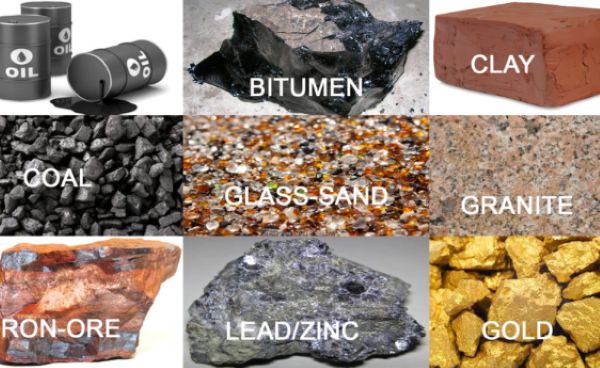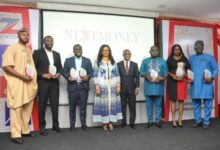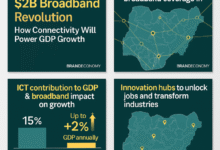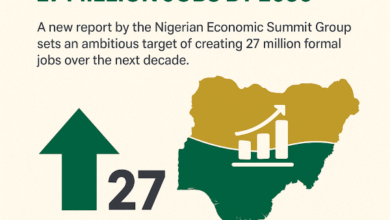Tinubu’s Mining Reforms Unlock $800m in FDI as Solid Minerals Sector Enters New Era of Value-Driven Growth – Alake

In what is emerging as a defining success story of Nigeria’s post-oil economic transition, the solid minerals sector has attracted over $800 million in foreign direct investments (FDI) in 2025 alone, driven by a radical overhaul of mining policy under the Tinubu administration.
Minister of Solid Minerals Development, Dr. Dele Alake, disclosed this during an interview for a forthcoming State House documentary marking President Bola Tinubu’s second year in office. According to Alake, the surge in investment is anchored on new reforms centred around local value addition, a restructured licensing regime, and aggressive formalisation of the mining value chain.
From Pit to Plant: Ending the Age of Raw Mineral Exports
“We have drawn a line under the era of pit-to-port exports,” Alake declared. “No miner can now obtain a license without committing to processing minerals locally. That’s the new standard—and it’s working.”
Flagship projects already catalysed by the policy include:
- A $600 million lithium processing facility near the Kaduna-Niger border, set for commissioning this quarter.
- A $200 million lithium refinery on the outskirts of Abuja, nearing completion.
- Two more processing plants in Nasarawa State, expected to go live before Q3 2025.
These investments mark a significant pivot away from Nigeria’s traditional extractive posture and into a beneficiation-driven model, where value is retained and multiplied within the country—through jobs, industrial linkages, and technology transfers.
Revenue Growth on a Lean Budget
Despite receiving just 18% of its ₦29 billion budgetary allocation in 2024, the sector recorded ₦38 billion in revenue, up from ₦6 billion in the previous year—an over 530% increase that underscores the effectiveness of Tinubu’s mining blueprint.
For Q1 2025 alone, two regulatory agencies—the Mining Cadastral Office (MCO) and Mines Inspectorate—have already generated ₦6.9 billion and ₦7 billion, respectively.
“This shows that with the right incentives and governance structures, Nigeria’s solid minerals can rival oil in terms of contribution to GDP and employment,” Alake said.
$1 Trillion Exploration Budget Signals a Data Revolution
Recognising that no investor will commit capital without credible geological data, the Tinubu administration, through its mining reforms, has committed ₦1 trillion in the 2025 budget to mineral exploration—a game-changing move in a country that previously spent less than $2 million on exploration annually.
By contrast:
- Sierra Leone: $40 million
- Côte d’Ivoire: $148 million
- South Africa: Over $300 million
Alake emphasized that the new funding will be channelled toward producing internationally certified geological data—a prerequisite for unlocking the kind of strategic partnerships and technology investments that can industrialise Nigeria’s mining base.
Curbing Illegal Mining, Formalising Artisanal Activity
A core component of the sectoral reform has been the crackdown on illegal mining, which has long bled the Nigerian economy of billions in untaxed resource extraction. Through a combination of “kinetic” enforcement via Mining Marshals and “non-kinetic” strategies like the formation of cooperatives, over 300 illegal miners were arrested, with 150 prosecutions ongoing and nine convictions secured, including foreign nationals.
So far, over 250 mining cooperatives have been formalised nationwide, making them eligible for access to finance, royalties, and training under the Ministry’s formalisation initiative.
Nigeria Leads Africa’s Push for Beneficiation
Nigeria’s reformist stance is now gaining continental momentum. The country recently assumed chairmanship of the newly formed African Mineral Strategy Group, a pan-African bloc created to end raw material dependency and demand better trade terms.
“This is a direct outcome of Nigeria’s strategic engagement at the 2024 Future Minerals Conference in Riyadh,” Alake noted. “We are now leading the charge in Africa: no more raw exports without beneficiation.”
Investor Confidence on the Rise
Nigeria’s lithium-rich deposits have attracted growing interest from top global powers, including the United Kingdom, United States, Saudi Arabia, and the United Arab Emirates.
“The former British Deputy Prime Minister invited me to Downing Street to discuss their interest in Nigerian lithium,” Alake said. “The U.S., keen to diversify its supply chains away from China, also views Nigeria as a viable alternative.”
The Mining Cadastral Office alone received over 10,000 new licensing applications in the first quarter of 2025—a signal of the sector’s growing vibrancy and regulatory credibility.
BRANDECONOMY Insight: A Sector in Renaissance
The reforms underway in Nigeria’s solid minerals sector represent more than just a policy shift— If well thought out and implemented, they signal the birth of a new industrial base. With robust enforcement, record-breaking exploration funding, and a laser focus on value retention, the sector might just become a cornerstone of Tinubu’s economic diversification drive.
Bottom Line: With $800 million already unlocked in 2025 and a pipeline of transformative projects in line with the mining reforms, Nigeria’s mining industry may no longer a sleeping giant—it is now supposed to be wide awake and mining towards prosperity.











